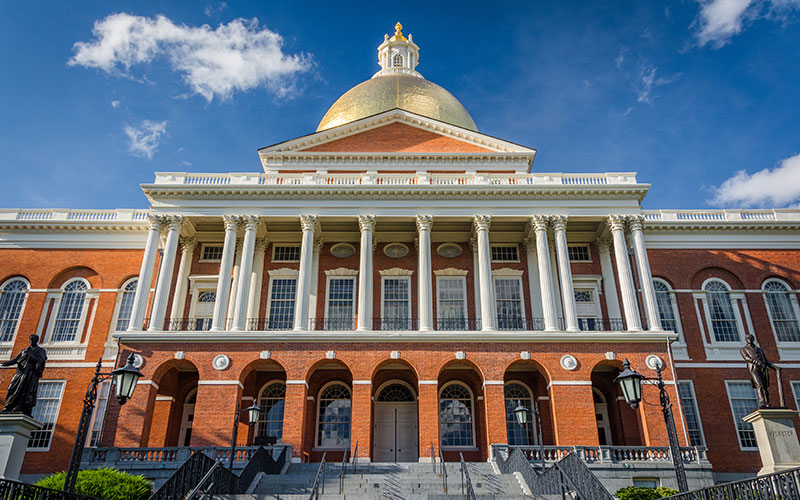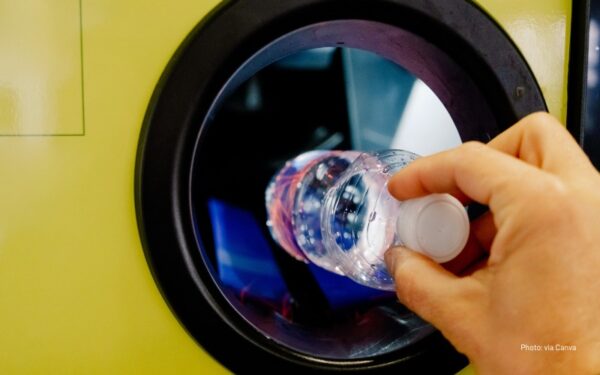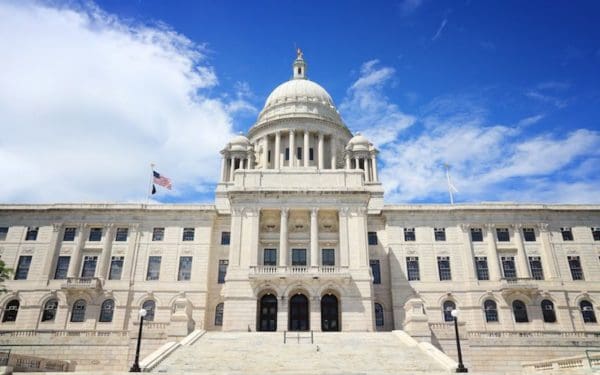
A bill under consideration at the Massachusetts Statehouse would codify protections for environmental justice communities throughout the state.
On a Thursday night in late November of last year, residents from Chelsea and East Boston came out in force for a meeting of Massachusetts’s Energy Facility Siting Board. At issue: a proposal by Eversource, the state’s largest utility company, to build and operate two new 115-kilovolt underground electric transmission lines and an above-ground substation in their communities.
These neighbors were concerned about how the proposed projects would affect their health and safety and had come to the meeting to voice their opposition. They wanted a say in the Siting Board’s decision and to know how that decision would impact their lives. At the most basic level, the residents from these majority Spanish-speaking neighborhoods expected to be able to understand what was said at the meeting.
But despite advanced notice that many of those attending would need interpretation services to follow the discussion, no services were available. The sole interpreter was provided for the Board’s benefit, not for the Spanish-speaking residents. Having traveled to the Siting Board meeting to get answers and be heard, instead, these residents left the meeting without a voice and with grave questions about how such a significant construction project would change their neighborhoods.
At the meeting, Roseann Bongiovanni, executive director of the community organization GreenRoots, offered suggestions about how to make the three-hour hearing accessible to these residents. But she was told by Siting Board staff that this would be too disruptive. A letter sent later to Energy Secretary Matthew A. Beaton demanding that the Siting Board change its practices has gone unanswered for months.
This meeting is only one example of how communities of color and low-income, immigrant, refugee, and indigenous communities are too often sidelined from the very processes that decide their future. What’s more, they don’t enjoy the same environmental benefits as those in whiter, wealthier communities.
That’s why CLF and our partners are working to pass the Massachusetts Environmental Justice Act, H.2913/S.426, An Act Relative to Environmental Justice and Toxics Reduction in the Commonwealth. This bill will shift the state’s approach to environmental justice from policy to law. This shift is the next step in protecting everyone in the Commonwealth from environmental harms and ensuring our state constitutional right to a healthy and safe environment.
We All Have the Right to a Healthy Environment
Article 97 of the Massachusetts Constitution enshrines our basic right to a healthy environment. However, that right has long been distributed unequally.
Compared to wealthier, white areas, the neighborhoods that we call “environmental justice communities” bear higher environmental risks, including from greater numbers of industrial facilities and poorer infrastructure. As a result, they experience far worse health outcomes, such as higher rates of respiratory and heart diseases.
More and more, the risks now include the alarming health, safety, and financial harms and the uncertainty associated with climate change. We have seen this along the Gulf Coast, in Houston, and throughout Puerto Rico, where flooding has devastated low-income communities and communities of color and where economic and political barriers prevent real recovery, including the ability to return home. We are also seeing this here at home, where air quality is declining in our urban neighborhoods as we experience hotter and hotter days.
What’s more, residents of environmental justice communities have long been left out of decisions that impact their lives and their future. The November Siting Board meeting is just one example of many.
Massachusetts Policies Are Supposed To Protect Against Disparities
The Environmental Justice (EJ) Policy of the Executive Office of Energy and Environmental Affairs (EEA) mandates:
“the equal protection and meaningful involvement of all people with respect to the development, implementation, and enforcement of energy, climate change, and environmental laws, regulations, and policies and the equitable distribution of energy and environmental benefits.” (emphasis added)
Meaningful involvement means that Massachusetts agencies must provide effective access for those with Limited English Proficiency (“LEP”), consistent with the State’s policy to break down barriers to language access and its legal responsibility to not discriminate based on national origin or English language proficiency.
More than a third of the Commonwealth’s cities and towns are home to EJ communities, in which at least 25 percent of households in a census block identify as “English Isolated,” low income, or a household of color. So effective access is especially critical in ensuring all residents’ voices are represented in decisions.
But too often, that access is ignored or denied – or considered “too disruptive” as Bongiovanni was told by Siting Board staff last November.
New Bill Before the State Legislature Codifies Protections for EJ Communities
Massachusetts’s Constitution should be enough to protect everyone’s right to live in a healthy environment – regardless of race, class, national origin, or language spoken – but it is not. And even good policies are not good enough when they go unenforced.
Let’s Make Environmental Justice the Law
We need the Commonwealth to effectively and consistently enforce environmental justice protections and make certain that EJ communities experience the environmental benefits they have long been denied. The Environmental Justice Act both strengthens the Commonwealth’s ability to do just this and gives the public stronger mechanisms to make sure it occurs. The Act does the following:
Writes Environmental Justice into Law
Enshrines into law the definition of environmental justice as “the right to be protected from environmental pollution and to live in and enjoy a clean and healthful environment regardless of race, income, national origin, or English language proficiency.” This legal commitment strengthens the Commonwealth’s ability to protect EJ communities and provides communities with a tool to hold government and industries accountable.
Reduces Risk of Exposure
Requires the Secretariat of Energy and Environmental Affairs to put a cap on the expansion or siting of new industrial facilities within EJ communities. This proactive commitment will lower the risks of toxic exposure by those of us living in EJ communities and help preserve our access to a healthy environment.
Establishes Government Oversight
Dedicates Commonwealth resources and staff with the creation of a Director of Environmental Justice, Environmental Justice Coordinators for each Secretariat, and an Interagency Environmental Justice Working Group and creates responsibilities for each. With dedicated staff and leadership, we should see clear directives to each state agency about the need for inclusive process, as well as proactive policies to move the ball on environmental health.
Improves Access to Government
Ensures multilingual outreach and consultation when projects undergoing environmental review are proposed in EJ communities. Had this been in place when the Eversource project was proposed in Chelsea and East Boston, then the Siting Board would not have even questioned its mandate to provide interpretation services. It also creates a Massachusetts Environmental Justice Advisory Council with guaranteed representation from EJ communities as a check and balance.
Funds Beneficial Projects
Creates a Supplemental Environmental Project bank, so that violators of environmental law can directly fund improvements to EJ communities, instead of paying penalties.
We all have the right to a safe, healthy, and clean environment. We also all have the right to be able to fully understand and participate in processes that shape our lives and communities-a right denied to residents from Chelsea and East Boston last November.
It is long past time for those rights to be felt equitably by all. The EJ Act is a starting point.
Take Action to Support Passage of the EJ ACT
H.2913 has recently been assigned to the Massachusetts House Committee on Ways and Means. In public testimony to the Committee, the Secretary of Energy and Environmental Affairs stated a clear commitment to environmental justice efforts and appears ready to include such EJ funding in the agency’s next fiscal year budget. Passage of the EJ Bill should be accompanied by approval of secure funding for this purpose.
In light of this commitment, we need to ask our representatives that they support the passage of the EJ Act and support the appropriation of dedicated EJ funds. These funds will allow Energy and Environmental Affairs to hire a senior-level Director of Environmental Justice, directly reporting to the Secretary, and an Assistant Director of Environmental Justice or other such staff that the Secretary and Director of EJ find necessary to carry out his or her duties.
You can help. Call Representative Jeffrey Sánchez, Chair of the House Ways and Means Committee. Ask him to bring H.2913 to a vote by the Committee so the bill can be voted on by the entire House of Representatives. Once the bill passes this critical step, we’ll need your help to ensure it passes, so be sure to sign up for CLF email updates so you know when to take action next.



